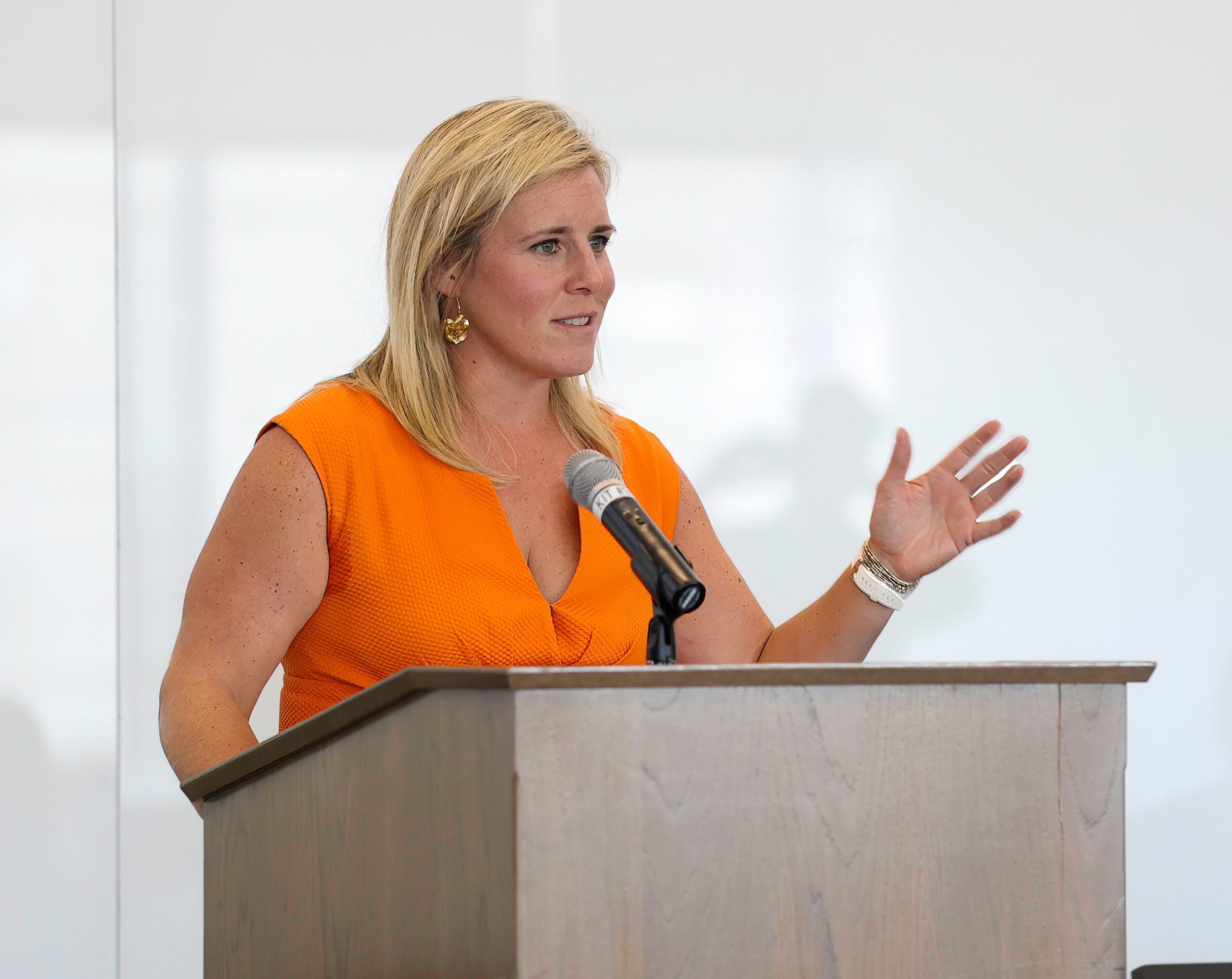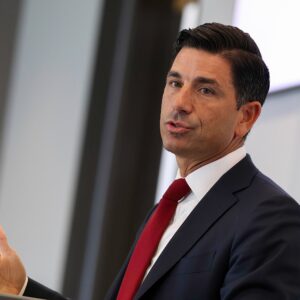The frontline in the battle against terrorism and human trafficking could be as close as your local Walmart checkout line.
That was the message from experts in homeland security, law enforcement, and retail commerce at a recent summit on organized retail crime (ORC) in Austin, Texas.
According to former Acting Secretary of the Department of Homeland Security Chad Wolf, who keynoted the event, the theft and sale of illicit goods help fund international criminal networks engaged in far more serious crimes than stealing baby formula and consumer electronics.
“I think we all know that ORC is not a new crime,” Wolf said. “What I don’t think is known is the depth and sophistication of illicit goods and illicit trade is a little bit more pervasive than most people realize and recognize.
“It’s also far more dangerous, especially when we look at the secondary and tertiary effects to the manufacturing and distribution and sale of illicit goods.”

Kristin Reif, Director of Government Affairs for Philip Morris International at the USA-IT Texas Summit on Oct. 11, 2022, in Austin, Texas.
According to Kristin Reif, Director of Government Affairs for Phillip Morris International, the size of the problem is as big as all of Texas. Bigger, in fact. “The estimated volume of illegal trade in counterfeit and illicit goods is $2.2 trillion a year,” Reif said. But in 2020, she noted, “the GDP of the state of Texas was $1.9 trillion.”
The roundtable was organized by United To Safeguard America From Illicit Trade (USA-IT), a public-private partnership to fight every aspect of the ORC problem, from international smuggling to local retailers.
“Baby formula has always been a high ORC item,” said Steve Hunter, Director of Global Investigations for Walmart. “Your typical over-the-counter medications, anything that you can think of to put on your skin, diabetic test strips, things of that nature are always high ORC, to even include going into electronics.”
Since 2020, sales of counterfeit goods online have increased by some 40 percent. Criminals involved in organized retail crime steal from retailers to turn a profit, not to use the stolen items for their own purposes. Fencing operations will give thieves, known as boosters, a list of merchandise they want. Once they have their haul, the fences use the internet to sell the products anonymously.
“What we’re starting to see now is they’re not just stealing the electronics because they want TVs. We’re actually seeing them come in and steal televisions to harvest the electronics,” Hunter said.
Even as the problem grows, however, panelists said it is sometimes difficult to get public policymakers to realize its gravity.
“I’ve been head of brand integrity for Phillip Morris International now for almost a decade, and for a long time when I’d talk about these issues, I would get a shoulder shrug. ‘It’s just cigarettes,’” Reif said. “But the problem is it’s not just cigarettes… it is who this funds. It is criminal networks who truly commit more dangerous crimes.”
Wolf noted the example of the 2015 terror attack on the offices of Charlie Hebdo magazine in Paris, where the mundane was used to fund murder. “The perpetrators of that attack largely funded their operation through the purchase and sale of counterfeit shoes from China.”
Closer to home, Rania Mankarious with Crime Stoppers of Houston said her group’s focus is the scourge of sex trafficking engaged in by some of these same online criminal networks. “Trafficking in people is a huge problem in Houston,” Mankarious said, including the online sale of children.
“Until you can hit their financial bottom line and hold people accountable — if everyone gets away by saying, ‘We’re a third party, this doesn’t affect us,’ that industry is going to continue to flourish. Until they’re told, ‘Well, actually, you are going to be held responsible,’ with checks and balances of course. But at least mandate that they must report [trafficking activity] or penalties will ensue.”
Agent Bradley Hudson, Assistant Special Agent in Charge with Homeland Security Investigations noted Sen. Charles Grassley (R-Iowa) has proposed the Combatting Organized Retail Crime Act in response to the rising problem.
“Organized retail crime costs retailers $720,000 for every $1 billion in sales – up 50 percent since 2015,” Grassley said in a statement.
For small businesses that do not have the resources to combat retail crime on their own, Reif hopes USA-IT can be effective in putting an end to ORC for the sake of all American business.
“This is where folks like us who have some more corporate resources… we can be that network that makes all boats rise.”

